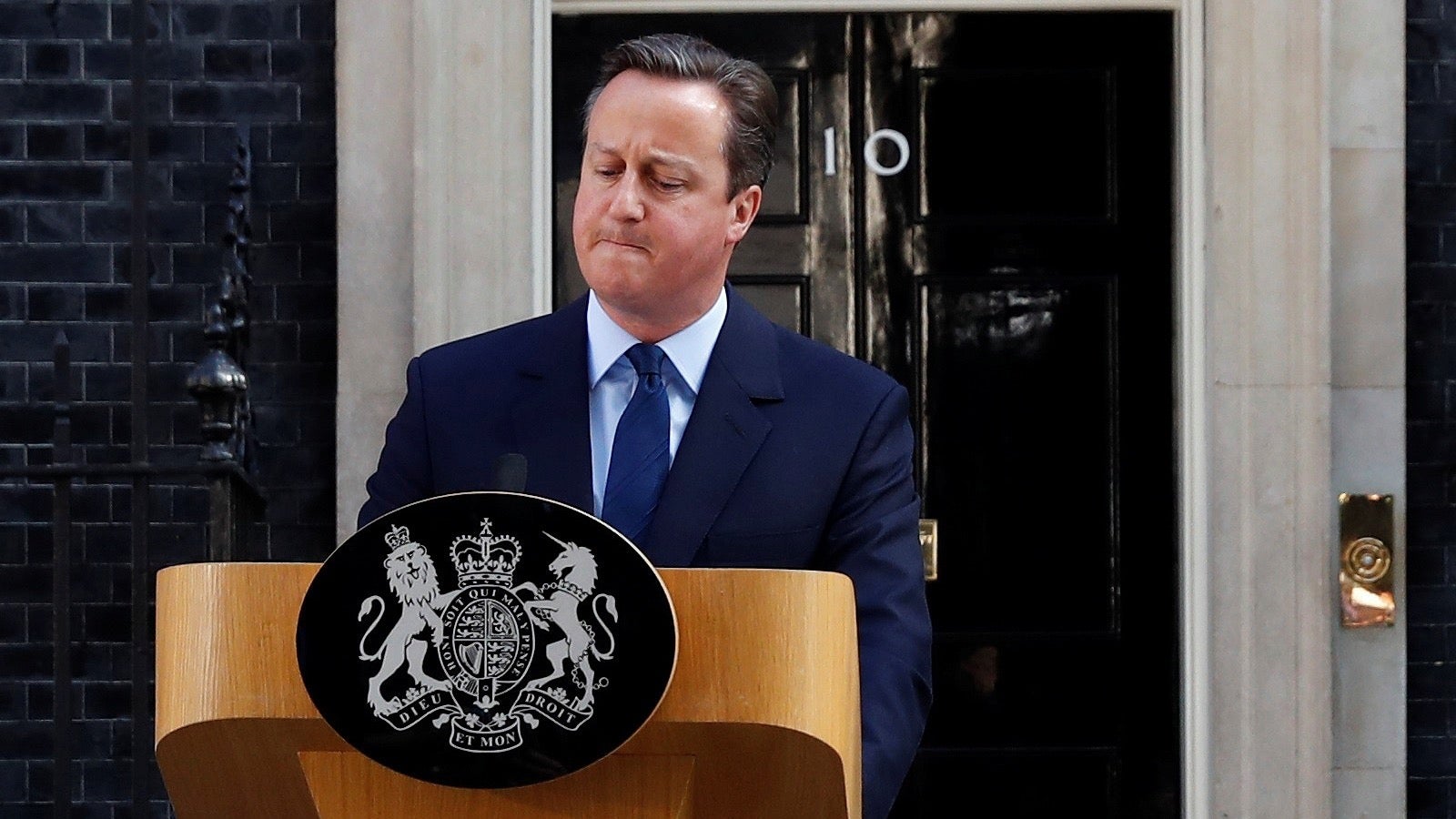If David Cameron were African, he would have never resigned, Twitter users say
Observers are still debating the impacts of Brexit throughout the African continent. The economic fallout is likely to hit some of the largest economies like South Africa, Nigeria, and Kenya. Politically, some worry that the African Union’s campaign to establish a “continent with seamless borders,” modeled after the European Union, could lose steam. Others say the 18 African Commonwealth countries will actually benefit, as the UK seeks closer ties with new partners outside of the EU.


Observers are still debating the impacts of Brexit throughout the African continent. The economic fallout is likely to hit some of the largest economies like South Africa, Nigeria, and Kenya. Politically, some worry that the African Union’s campaign to establish a “continent with seamless borders,” modeled after the European Union, could lose steam. Others say the 18 African Commonwealth countries will actually benefit, as the UK seeks closer ties with new partners outside of the EU.
One area of agreement is that few leaders on the continent would have reacted the way now former prime minister David Cameron did—admitting failure and stepping down. In Zimbabwe, online users compared Cameron to longtime leader Robert Mugabe, who has stayed in office despite losing the 2008 presidential election (he won unchallenged in the runoff). Others called on South African president Jacob Zuma to resign.
The comparison drew criticism from Zimbabwe’s minister of science:
The now disgraced British politician still has one base of support. The hashtag “What if David Cameron was African?” began trending after Cameron’s resignation on Friday, (June 24) with commentators praising the former leader of the Conservative party for falling on his own sword. Wry observations of how a similar scenario would have played in an African country reflect mistrust for Africa’s leaders and electoral processes.
Several elections this year will test leaders’ response to public will. Ugandan president Yoweri Museveni’s re-election win in February was marred by polling station irregularities, a crackdown on opposition protests, and a social media blackout. Ahead of scheduled November elections in the Democratic Republic of Congo, president Joseph Kabila’s main rival has been conveniently sentenced to jail for 36 months. In Rwanda, president Paul Kagame has said he will seek a third term for the sake of democracy.